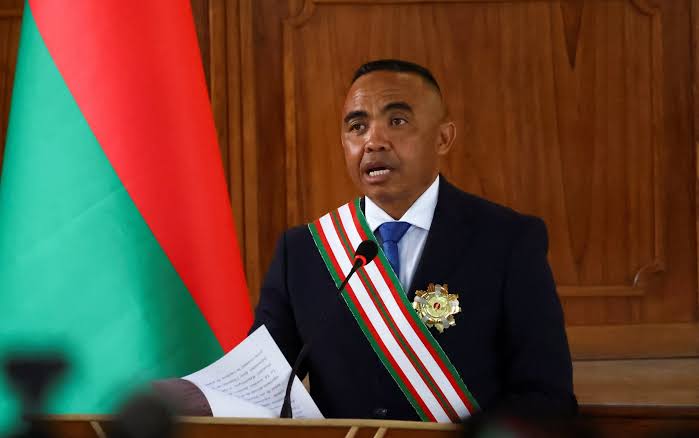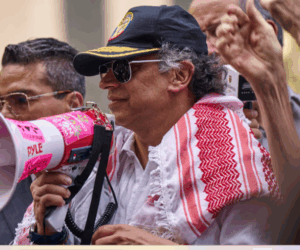Army Colonel Michael Randrianirina has been sworn in as the new President of Madagascar, just days after a military power takeover that forced former President Andry Rajoelina to flee the country.
The inauguration, held on Friday in the capital Antananarivo, followed Rajoelina’s impeachment for “desertion of duty” earlier in the week.
Randrianirina, who led the mutinous CAPSAT army unit that joined youth-led anti-government protests, described the development as a “historic turning point” for the island nation.
“We will work hand in hand with all the driving forces of the nation to draft a new constitution and establish fresh electoral laws,” he declared during the ceremony.
The swearing-in was attended by senior military officers, political leaders, youth representatives, and foreign delegations from the United States, European Union, Russia, and France.
Randrianirina defended the army’s intervention, claiming it was done at the request of the top court to prevent “anarchy and disorder.” He thanked the youth for their role in the nationwide protests that began on September 25 over worsening economic conditions and power shortages.
Amid criticism from the United Nations, the African Union, and regional bloc SADC, the 51-year-old insisted the takeover was constitutional, not a coup, and pledged to hold democratic elections within 18 to 24 months.
Dressed in a suit rather than his army uniform, the new president promised sweeping reforms to “break with the past” and overhaul Madagascar’s political and economic systems.
“Our main mission is to reform the country’s administrative, socio-economic, and political systems of governance,” he said, urging international partners to support “national renewal.”
Supporters of the ousted president have denounced the constitutional court’s endorsement of the transition, describing it as illegal and destabilizing. Rajoelina’s office confirmed he fled Madagascar last weekend, reportedly via a French military aircraft to Reunion Island before travelling to Dubai.
The former leader’s departure came after security forces were accused of using lethal force against protesters, leading to dozens of casualties. The CAPSAT unit’s refusal to continue the crackdown on October 11 reportedly turned the tide in favor of demonstrators.
Madagascar’s crisis marks its third military transition since independence in 1960, following coups in 1972 and 2009. Despite its rich natural resources and biodiversity, the island remains one of the world’s poorest nations, with around 80 percent of its 32 million citizens living below the poverty line, according to the World Bank.
International observers have urged the inclusion of civilians in the transition process. French Foreign Minister Jean-Noel Barrot said Thursday that Madagascar’s youth must be “fully heard to build a sustainable, peaceful, and calm solution.”
AFP








